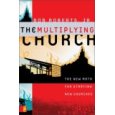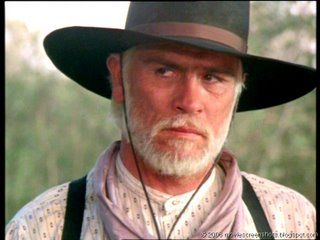 David Murrow is one of my favorite authors. Not only that, he is a creative thinker about how to reach one of the hardest segments of our culture–men. Here is what he wrote about a new paradigm for church planting that he has been rolling around in his head. I think he is on to something here that will help all of us do a better job at making disciples.
David Murrow is one of my favorite authors. Not only that, he is a creative thinker about how to reach one of the hardest segments of our culture–men. Here is what he wrote about a new paradigm for church planting that he has been rolling around in his head. I think he is on to something here that will help all of us do a better job at making disciples.
I look forward to reading the rest of his thoughts on this.
Today’s most talked-about church models are polar opposites: megachurches and house churches. Megachurches attempt to draw thousands each weekend with a combination of professional music, top-flight preaching and a phalanx of ministry opportunities. House churches assemble a handful of believers for intimate fellowship, personal expression and a sense of belonging.
These approaches have both strengths and weaknesses when it comes to reaching men. Megachurches offer amazing quality – but they’re so big men can fall through the cracks. House churches offer close fellowship – but they can become ingrown and a bit stale.
I’d like to suggest a third model for the local church, based on Luke 10. I call it The Seventy-Two Church. It’s an idea that’s been rolling around in my head for a couple of years. It’s a hybrid – a cross between a house church and a typical congregational model. It bears some resemblance to the Methodist societies that led so many to Christ in the 1700s and 1800s. Let me share the concept with you and see what you think.
How we plant churches now. Almost every church plant begins as a weekly worship service. The goal is to present good preaching and music so that people start coming. Eventually you buy property and build a building. The idea is to create a large gathering of strangers (a crowd) and eventually work these folks into the life of the church (the core). This is the concept that built Saddleback into one of the world’s most influential churches.
The weakness of this approach is obvious: as the church grows, its ability to minister to individuals is diminished. Big churches know this, so they work overtime to get people into small groups. But most church attenders never find their way to a small group. So these churches draw big crowds, but their impact on their members’ lives is not what it could be (Willow Creek recently admitted as much).
Now, what if you flipped the equation? Instead of growing a large worship service, then trying to get people into small groups, why not build the church on small groups in the first place?
This is how Jesus did it. He started His church with one small men’s group. Twelve regular guys learning, doing and living life together.
Eventually He expanded his reach to 72 men (see Luke 10). Now, where do you think these 72 came from? How were they trained? The Bible does not say. But I have a theory: if each of the 12 apostles trained 5 more men, you’d have 72 men either directly or indirectly trained by Jesus.
Why couldn’t you establish a church today based on this model? Its centerpiece would not be a weekly worship service, but rather a network of relationships – in this case, seventy-two men who are all being personally discipled every week.
I hear paradigms cracking all over the world. I can imagine the objections are already rising in your throat. Bear with me a moment, as we see how a seventy-two church might work in the real world.
Structure and leadership are crucial. Our new church plant starts with a leader (let’s call him Pastor Jack). His first task would be to call 12 men to a rigorous, demanding course of discipleship. Jack would meet regularly with his twelve, focusing on the basics of the faith, including mutual confession, accountability, Biblical living, beating temptation, and practical service to God.
Once friendships form among the men, Jack would pair them up two-by-two. He would give each pair of men a nickname. (Jesus dubbed James and John “The Sons of Thunder.” That sounds nice and manly.) Jack would send each pair out to do stuff together: ministry, recreation and fun. The idea is to get them working together as a unit.
After a year or so, Jack would have a dozen trained, committed leaders who will become the foundation of his church of seventy-two. Then Jack would issue the big challenge: each pair should go out and find 10 more men who really want to grow in faith. Jack would continue to meet with his original 12 men to help them form their groups and raise their men up to maturity.
Assuming the pairs fill their groups, you’d have 72 men being discipled. (12 original disciples, leading 6 groups of 10 men each = 72 men). The foundation of Jack’s church is not a weekly gathering of strangers but a rich honeycomb of men becoming like Jesus. These men are already in accountability pairs, following Jesus as a team.
At this point, a church of 72 would look more like a men’s ministry than a church. But don’t worry; you’re just laying the foundation. Christ told us to build upon a rock. He looked a Simon (a man) and changed his name to “Rock.” It’s time we begin building our churches not on preaching and music, but on the bedrock of transformed men. Upon this rock you can build a strong, enduring church.








 In the Lonesome Dove movies, there is a big emphasis on the vision of Captain Woodrow Call, and how he turns his vision into reality.
In the Lonesome Dove movies, there is a big emphasis on the vision of Captain Woodrow Call, and how he turns his vision into reality.